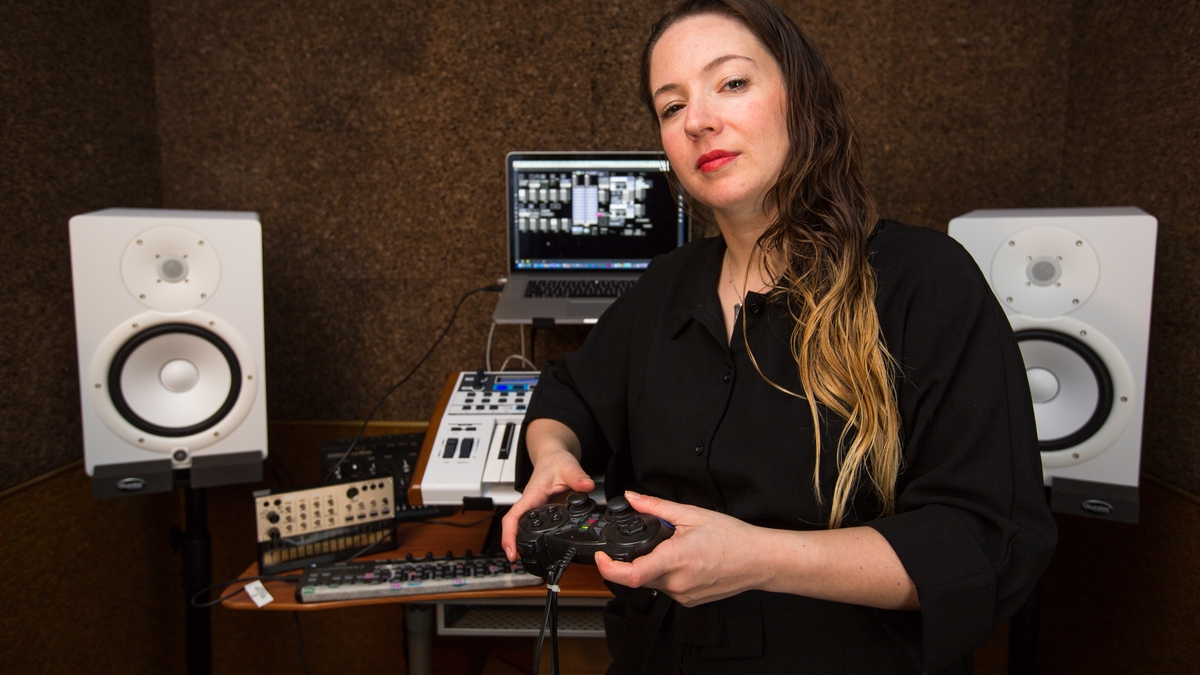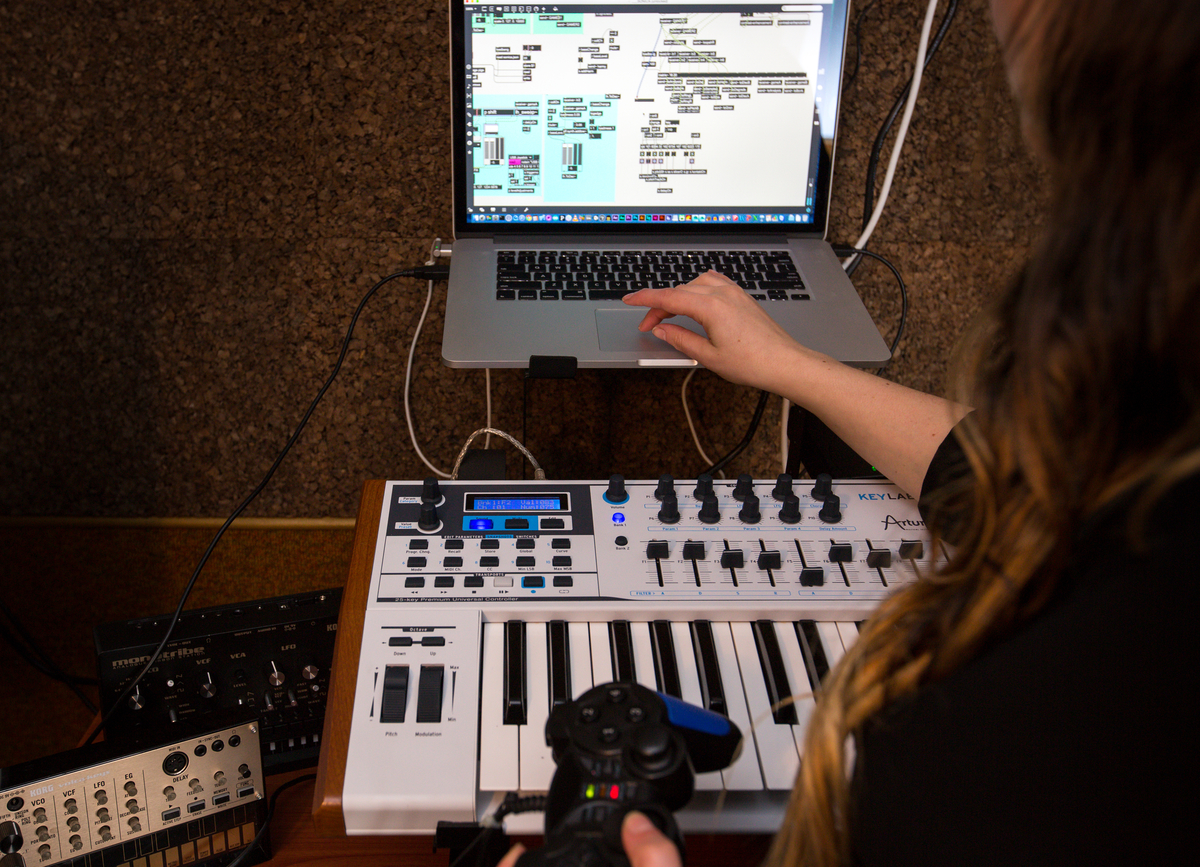Editor's note: This is part of a series highlighting new faculty members at Arizona State University. Find a complete listing of new 2015-2016 faculty here.
Lauren Hayes fronted punk and ska bands in her teens, is a wiz at the keyboard and played the role of Deborah Harry in a tribute band from Scotland called Gentleman Prefer Blondie.
Now she’s teaching classes at ASU.
But the new assistant professor of sound studies in Arizona State University’s School of Arts, Media and EngineeringThe school is a collaborative initiative between the Herberger Institute for Design and the Arts and the Ira A. Fulton Schools of Engineering. doesn’t want you to go by her resume; she’d rather you look at her pedigree.
Classically trained in piano since the age of 4, Hayes (pictured above) is a composer, performer and improviser with a doctorate from the University of Edinburgh. She has produced a large portfolio of work, research and music, including three albums. Hayes said her father, David, who played in Motown tribute bands in the 1960s and tinkered with electronics, was her greatest influence.
“We always had a piano, but another aspect was the amount of electronics, computers, Lego mechanics and instruments in the house,” Hayes said. “My dad would solder his own guitar effects, and that influence helped me on my own path.”
Hayes was recording at age 8, which was right around the same time she got into experimental music.
“I’d improvise for hours on the piano. I’d think certain things were hilarious and I’d shout them out to my parents, emulating contemporary classical music that I’d heard,” Hayes said. “When you’re young, you’re told that it’s just noise and that’s not how you’re supposed to play it. But that’s a practice I do now because it’s what I teach.”
For many years Hayes has given multisensory workshops for various groups, including those with sensory impairment, learning difficulties and autism. These workshops use vibration and music to explore the links between sound and touch, often resulting in custom-built instruments designed specifically for a user.
At ASU, Hayes will teach Introduction to Digital Sound and conduct future research examining the performance practices of live electronic and electro-instrumental musicians within various distinct musical communities.
“My work is very much based around the physical experience of technology and digital media in relation to sonic art and music, particularly for performers and audiences,” Hayes said. “I want to find more ways where people can be more interactive so there’s no division between the performer and the audience.”
Last year, as a visiting professor at ASU, Hayes was able to accomplish that goal when she participated in an all-day music festival at Phoenix’s Clarendon Hotel featuring artists who performed in the lobby, a rooftop entertainment space and outside on the pool deck. Hayes played live electronics, which could be heard above and below water by people who used the hotel’s pool, thanks to a pair of underwater speakers.
Hayes said she wants her students to push their artistic boundaries, and inspire them through trial and error.
“I’m not trying to impose my musical aesthetics on anyone because I want to find out what are their backgrounds, what are their interests and get them to try things they haven’t done before,” Hayes said. “I want to encourage them to make mistakes and fail, but more important, help them develop their own personalized practice through the tools I’m going to give them in class. ”
It’s almost like Hayes is channeling her Blondie roots, telling the students to find the answers “One Way or Another.”
Assistant professor Lauren Hayes demonstrates her electronic musical instrument in the small studio in her office on Jan. 27. She uses a computer program, a MIDI controller and keyboard along with a video game controller to produce sounds. Photos by Charlie Leight/ASU Now
Listen to selections of Hayes' compositions here.
More Science and technology

ASU professor breeds new tomato variety, the 'Desert Dew'
In an era defined by climate volatility and resource scarcity, researchers are developing crops that can survive — and thrive — under pressure.One such innovation is the newly released tomato variety…

Science meets play: ASU researcher makes developmental science hands-on for families
On a Friday morning at the Edna Vihel Arts Center in Tempe, toddlers dip paint brushes into bright colors, decorating paper fish. Nearby, children chase bubbles and move to music, while…

ASU water polo player defends the goal — and our data
Marie Rudasics is the last line of defense.Six players advance across the pool with a single objective in mind: making sure that yellow hydrogrip ball finds its way into the net. Rudasics, goalkeeper…



